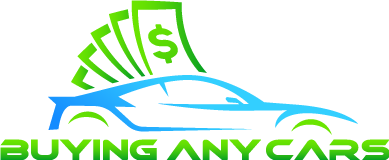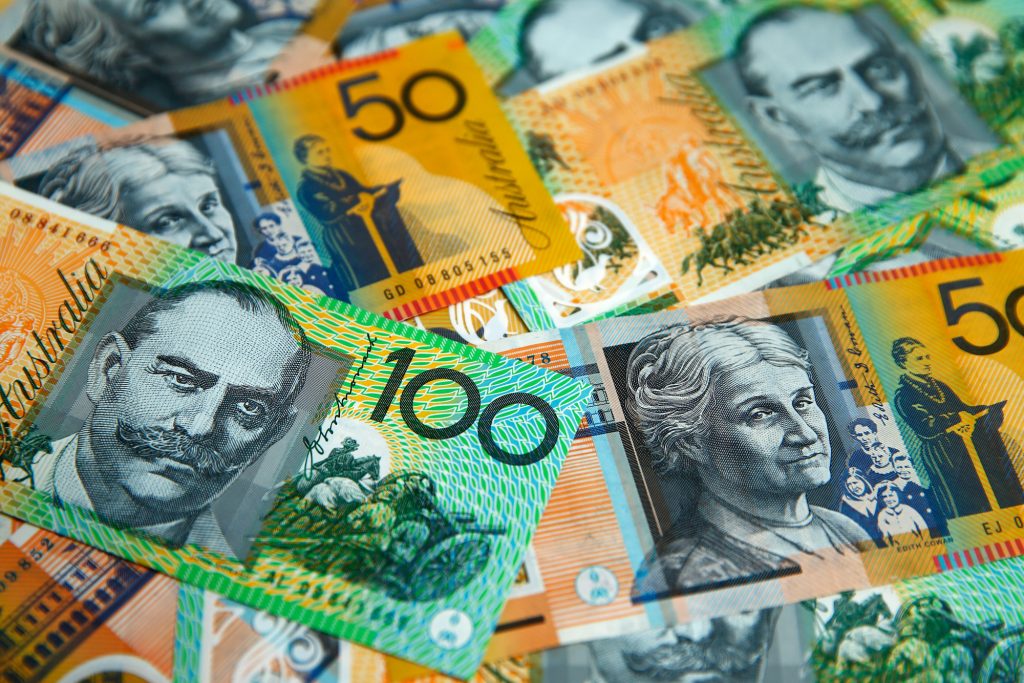Why Is my Car Burning Oil? (Causes & How To Fix)

There’s nothing quite as annoying as checking your dipstick only to find your engine oil has vanished like socks in the wash.
If your car’s burning oil, you’re not alone – and it’s something that can range from mildly irritating to seriously expensive.
In this guide, we’ll walk you through the signs, causes, and fixes so you can get your car back in good shape – or know when it’s time to call it quits.
What Does It Mean When a Car Is Burning Oil?
Burning oil means your engine is using oil in a way it shouldn’t.
Instead of just lubricating engine parts, some of the oil is slipping into the combustion chamber and getting burned along with fuel.
This can happen slowly or suddenly. Sometimes it’s a few drops here and there, but in more serious cases, you’re topping up oil as often as you fill up petrol.


Understanding Oil Consumption vs Oil Leaks
Oil leaks and oil consumption are two different beasts. A leak means oil escapes from the engine, often leaving puddles under your car or coating your engine bay.
Oil consumption, on the other hand, happens internally – there’s no mess on the driveway, but your oil levels keep dropping.
Burning oil is a form of oil consumption, and it often signals internal wear or malfunction.
How Burning Oil Affects Engine Health
If left unchecked, burning oil can lead to lower compression, fouled spark plugs, and eventually catastrophic engine failure.
It’s like running a marathon on half a lung. Your engine works harder to maintain performance, temperatures rise, and wear accelerates.
Over time, it’s a recipe for costly repairs – or worse, needing a whole new engine.
Common Signs Your Car Is Burning Oil
Some signs are subtle, others hit you like a wall of smoke. Paying attention to early symptoms can help you act before things get ugly.
Blue Smoke From the Exhaust
If you see bluish smoke trailing behind your car, that’s a clear red flag. This means oil is getting into the combustion chamber and burning along with the air-fuel mix.
It’s most noticeable when you start the car or accelerate hard. Older engines or worn seals are usually to blame.
Frequent Drops in Oil Level
Checking your dipstick and noticing the level constantly dropping? If there are no visible leaks, your engine is likely burning oil.
Keeping a log of how much oil you’re topping up over time can help diagnose the severity of the issue.


Burning Oil Smell From the Engine Bay
That unmistakable smell of burning oil – sort of like a mix between hot metal and a mechanic’s overalls – often means oil is dripping onto hot components like the exhaust manifold.
While this might suggest a leak rather than burning oil through combustion, it’s still worth checking, as it can evolve into bigger problems fast.
Dashboard Oil Warning Light
When the oil pressure warning light flickers on, don’t ignore it. It’s not a mood light – it means your engine is running low on oil, and continued driving can damage internal parts.
If the light keeps reappearing after top-ups, you’re probably losing or burning more oil than you should be.
Poor Engine Performance or Misfires
Oil-fouled spark plugs can cause misfires, rough idling, or even hesitation during acceleration.
If your car feels sluggish or sounds off, and you’re also noticing oil loss, burning oil might be the culprit.
Main Causes of Oil Burning in Cars
Engines can burn oil for all sorts of reasons – some minor, some major. Here’s a rundown of the usual suspects.
Worn Piston Rings
Piston rings seal the gap between the piston and the cylinder wall. If they wear out, oil seeps past them into the combustion chamber.
This is a common issue in high-mileage cars and often requires an engine rebuild or replacement.
Damaged or Worn Valve Seals
Valve seals prevent oil from leaking into the engine’s cylinders via the valve guides. When these seals get brittle or worn, oil leaks in during engine operation, especially at idle.
It’s one of the sneakier ways oil finds its way into the combustion chamber.
PCV (Positive Crankcase Ventilation) Valve Failure
The PCV valve controls pressure inside the engine and routes vapours back into the intake to burn off.
If it fails, pressure can build up and force oil into places it shouldn’t go. It’s an inexpensive part, but ignoring it can lead to costly damage.
Blown Head Gasket
This one’s bad news. A blown head gasket can allow oil to leak into the combustion chamber or the coolant system.
It’s often accompanied by overheating, white smoke, or even sludge under your oil cap. Repairs are complex and expensive.


Turbocharger Wear or Failure
Turbocharged engines operate under high pressure and heat. If the turbo’s seals wear out, oil can leak into the intake or exhaust system and get burned off.
You might notice decreased performance and that classic blue smoke.
Overfilled Engine Oil
Yes, too much of a good thing can be bad. Overfilling your engine with oil causes foaming, increased pressure, and oil being pushed past seals and rings into the combustion chamber.
Always fill to the recommended level – no more, no less.
Incorrect Oil Type or Grade
Using oil that’s too thin for your engine allows it to slip past seals more easily.
Modern engines are picky, and using the manufacturer-recommended oil is key to keeping things running right. Always check your owner’s manual.
Engine Age and High Kilometres
Engines wear out over time. If your car’s clocking 200,000 km or more, some oil consumption is expected.
Internal seals and rings degrade, especially if the car wasn’t maintained well. Think of it like an old kettle – it still works, but leaks and drips more than it used to.
Diagnosing Why Your Car Is Burning Oil
Guesswork won’t cut it here. Pinpointing the cause of oil burning takes observation, testing, and sometimes professional help. Here’s how to get started.
Visual Inspections and Engine Bay Checks
Start simple. Pop the hood and look for oil residue around gaskets, seals, or the valve cover. Check the exhaust pipe for oily soot.
While this won’t confirm internal burning, it helps rule out leaks.


Using a Compression or Leak-Down Test
These tests check how well your engine holds pressure. Low compression often points to worn piston rings or damaged valves.
Mechanics use special tools for this – if you’re getting serious about the diagnosis, it’s worth the trip to the workshop.
Inspecting the Spark Plugs
Pulling out spark plugs and finding oil on them is a strong sign that oil is making its way into the combustion chamber.
Fouled plugs can also help identify which cylinder is affected, saving time and money during repairs.
Checking the Exhaust Smoke Colour
Blue smoke means oil, white usually means coolant, and black indicates excess fuel. A smoky exhaust is like your engine talking to you – listen closely.
Watch especially when accelerating or decelerating quickly.
Monitoring Oil Consumption Over Time
Track how much oil you’re adding between services. If you’re adding more than one litre every 1,500 to 2,000 km, that’s excessive.
Use a notebook or a smartphone app to log every top-up. This data helps mechanics diagnose the issue faster.
How to Fix a Car That’s Burning Oil
Fixes can range from simple parts replacements to major overhauls. The right solution depends on the cause and your budget.
Replacing Worn or Damaged Engine Components
If piston rings, valve seals, or gaskets are to blame, replacing them can stop the oil burn. But these aren’t minor jobs.
They often require pulling the engine apart, which takes time and expertise.


Repairing or Replacing the PCV System
If your PCV valve is stuck open or clogged, replacing it can fix oil-burning issues almost immediately. It’s cheap, quick, and often overlooked – so always check it first.
Using High-Mileage or Stop-Leak Engine Oils
Some oils are designed for older engines and contain additives that condition seals and reduce oil consumption.
They’re not miracle cures, but they can help in mild cases or buy you time before a major repair.
Engine Rebuilds or Replacement (Severe Cases)
If your engine’s internals are worn out across the board, rebuilding or replacing the engine might be the only option.
This is a major investment, so consider the value of the car before going down this road.
Consulting a Qualified Mechanic
If in doubt, get professional help. A skilled mechanic can perform tests, offer advice, and give you a realistic picture of what needs fixing.
Don’t rely on guesswork or forums – get real answers before spending your hard-earned cash.
How to Prevent Your Car From Burning Oil
Prevention is cheaper than repair. Keep your engine in good shape with these basic habits.
Stick to Scheduled Oil Changes
Changing your oil on time helps remove dirt and contaminants that can wear out seals and rings. Follow your service book – it exists for a reason.


Use the Right Oil Type and Viscosity
Don’t play mix and match. Using the recommended oil for your engine helps maintain pressure, reduces wear, and stops oil from slipping past critical components.
Drive Smoothly and Avoid Engine Strain
Revving the engine hard before it’s warmed up or towing heavy loads in high heat increases stress. Take it easy – your engine will thank you.
Conduct Regular Engine Maintenance
Keep air filters clean, fuel systems clear, and spark plugs fresh. Small things prevent big problems down the road.
Check and Top Up Oil Frequently
Get in the habit of checking your oil level every 1,000 km or so. Top up when needed and look for sudden drops. The earlier you spot a problem, the cheaper it is to fix.
Is It Safe to Drive a Car That’s Burning Oil?
It depends. If your oil loss is minor and you’re monitoring it, you can usually drive short distances without much risk.
But if you’re constantly topping up or seeing blue smoke, it’s time to stop and investigate.
Short-Term vs Long-Term Risks
In the short term, low oil can cause overheating and reduce fuel efficiency. Over time, you risk serious damage to pistons, valves, and bearings.
Think of it like ignoring a toothache – it might not kill you today, but eventually, it’s going to hurt.
When to Stop Driving and Seek Repairs
If your oil warning light comes on, smoke pours from the exhaust, or the engine misfires, park the car. Call a mechanic or get it towed. Driving further could double or triple your repair bill.
When Repair Isn’t Worth It: What Are Your Options?
Sometimes, the smartest move is to let go. If the repair cost outweighs the car’s value, you might be better off saying goodbye.
Understanding Repair Costs vs Car Value
Engine rebuilds can cost thousands. If your car’s only worth $4,000 and the repair is $3,000, it doesn’t add up.
Do the maths. Consider age, mileage, and how much longer you want to keep it.


Considering Selling Your Car As-Is
You don’t need to fix everything before selling. Some buyers – especially wreckers and salvage yards – will pay cash for cars in any condition – no need to sugar-coat it. Just be honest about the issue.
How Buying Any Cars Can Help You Sell a Damaged Vehicle
If your car’s burning oil and the costs are too high, Buying Any Cars can offer a fast, stress-free way out.
They buy vehicles in all conditions, including ones with engine problems. Get a quote, organise free car removal, and have cash in hand without the hassle of private sales or dodgy buyers.
Frequently Asked Questions
Still got questions? You’re not alone. Here are some of the most common head-scratchers we’ve heard.
Why Does My Car Burn Oil But Doesn’t Leak?
Because the oil is being burned inside the engine. Internal wear, like bad valve seals or piston rings, lets oil slip into the combustion chamber and get burned, leaving no external trace.
Can Synthetic Oil Cause Burning?
Synthetic oils are thinner and can pass through worn seals more easily.
If your engine is older or high in kilometres, it might be better to use a high-mileage oil blend designed to minimise consumption.
Will a Thicker Oil Stop Burning?
In some cases, switching to a thicker oil can reduce burning. But this is only a temporary workaround.
It’s like using duct tape on a leaking pipe – might help for now, but won’t solve the root problem.
Can an Oil Additive Fix Oil Burning?
Oil additives can help condition seals and slow down burning, especially in older engines.
They’re not miracle solutions, but they can reduce consumption in mild cases. Don’t expect them to fix serious mechanical wear.
How Much Oil Consumption Is Considered Normal?
Some manufacturers say up to 1 litre per 1,500 km is acceptable, especially in performance or turbocharged engines.
But if your car is chugging oil faster than your mates drink beer on a Friday night, something’s not right.


